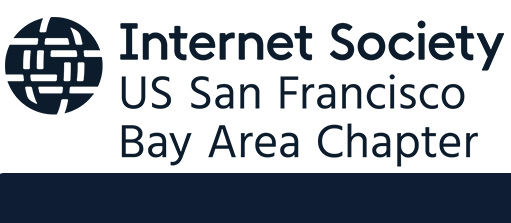Rural Broadband: Project Update March 2017
When farms are connected to the Internet, we all benefit. Agriculture that gains real-time information about plants, soil, atmosphere, and irrigation, dubbed “precision agriculture”, can save farmers 20-30% of their water consumption while increasing productivity by 20-70%, according to Valley Vision. The The San Francisco-Bay Area Internet Society Chapter is pleased to announce that we have started phase one of our collaborative project, “Bridging California’s Rural/Urban Digital Divide with Mobile Broadband“, which will collect data on mobile broadband performance in Yolo County, California in order to inform state officials and public policy to better advocate for the expansion of rural broadband access.
The urgency is real: many rural communities in California lack reliable, fast mobile broadband that can keep them competitive with global agriculture and safe-guard our environment. While California has a program for ground truthing reported broadband speeds, the program prioritizes households, not farms, and considers farming areas “unpopulated” in terms of need. The result is that rural economies in California are falling behind due to inadequate broadband access. This is in spite of the fact that California produces 70% of the total fruit and tree nut farm value and 55% of the vegetable farm value for the United States, all within driving distance from Silicon Valley’s technology hub. California’s Central Valley seems like it would be at the forefront of this shift towards precision agriculture, but ironically, it has fallen behind.
Project Updates: Phase One
Working together with California State University (CSU) Geographical Information Center (GIC), Chico, and Valley Vision, we’ve introduced milestones, project team members, and phases for the project. Phase one focuses on maps, data research and collection. The project team is still approaching more farmers for their participation, but so far has identified about 150 sites to use for data collection. The red dots on the map identify the publicly accessible test locations in farm field areas. The cross-hatched areas are where we’re requesting access to privately owned land. Data collection will be completed by the end of March 2017. This endeavor is funded through a generous grant via the Internet Society’s Beyond the Net program.
An Innovative Way of Collecting Data
The research team is using a mobile app called CalSPEED, a professional-level, industry-standard testing tool, to measure the quality and speed of mobile data connection. This tool allows for flexibility, as it’s available for both iOS and Android devices, and accuracy. The test captures upload speed, download speed, message delay (latency), and message delay variation (jitter), and then provides an overall Mean Opinion Score (MOS) and video quality rating. With this two-phase test, we’ll be able to make statistical judgments about the quality of the mobile broadband connection. The results are uploaded to a public database maintained by California Public Utilities Commission (CPUC) to compare this broadband coverage with that in other parts of California.
The GIC typically uses this tool twice a year on behalf of the CPUC to conduct statewide mobile broadband testing at 1,990 locations throughout California. This data collection in Yolo County will use much denser sampling in order to gauge with precision the availability of mobile broadband Internet. Because the test results may vary based on factors such as location, end-user hardware, network congestion, and time of day, the denser sampling will give us a very clear picture of the situation for this rural area
To learn more about CalSPEED, including latest reports and data, go to CPUC’s website. Results, news and coverage of field-testing efforts can be seen at the CPUC’s mobile broadband testing blog.
Looking Forward:
Once phase one is completed, the team will move towards the case study part of the project, during the low season after planting and before harvest. With these data-driven narratives, we will be able to better advocate for the response of public policy officials. The team is also working on securing opportunities to present the results of this study at conferences, as an academic report, and with other advocacy organizations.
Additionally, one of our partners on this project, Valley Vision, is conducting a pilot study to test the efficiency of different precision agriculture technologies. They are working with AgStart, a nonprofit agtech incubator, and Yolo County, CA, farmers to test cutting-edge technologies on three different types of crops. The synergy of this pilot study with our report will help further drive the efficiency and adoption of precision agriculture.
If you have any questions about this unique project, please contact us. This article was written by Jenna Spagnolo on behalf of the San Francisco-Bay Area Internet Society chapter.
 ISOC Bay Area – Internet Society
ISOC Bay Area – Internet Society ISOC Bay Area – Internet Society
ISOC Bay Area – Internet Society
